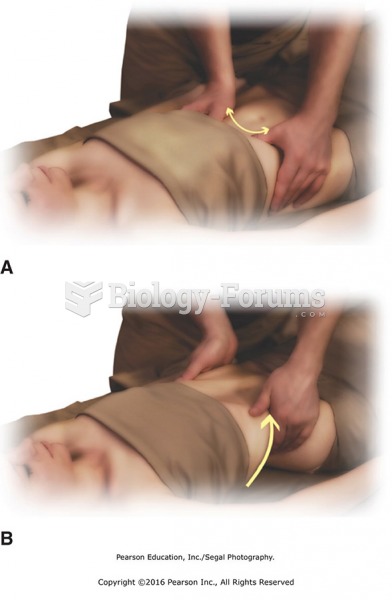This topic contains a solution. Click here to go to the answer
|
|
|
Did you know?
Signs of depression include feeling sad most of the time for 2 weeks or longer; loss of interest in things normally enjoyed; lack of energy; sleep and appetite disturbances; weight changes; feelings of hopelessness, helplessness, or worthlessness; an inability to make decisions; and thoughts of death and suicide.
Did you know?
More than 4.4billion prescriptions were dispensed within the United States in 2016.
Did you know?
In the United States, there is a birth every 8 seconds, according to the U.S. Census Bureau's Population Clock.
Did you know?
The people with the highest levels of LDL are Mexican American males and non-Hispanic black females.
Did you know?
Green tea is able to stop the scent of garlic or onion from causing bad breath.
 The tone of the nurse-patient introduction sets the stage for the patient interview and patient care
The tone of the nurse-patient introduction sets the stage for the patient interview and patient care
 Tumor marker analysis of a patient undergoing therapy, who (1) after surgery had residual disease ...
Tumor marker analysis of a patient undergoing therapy, who (1) after surgery had residual disease ...





